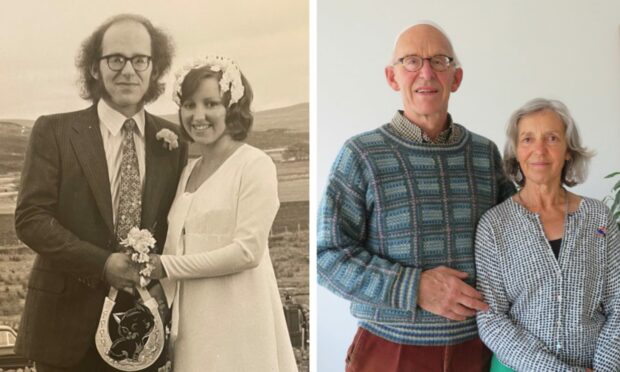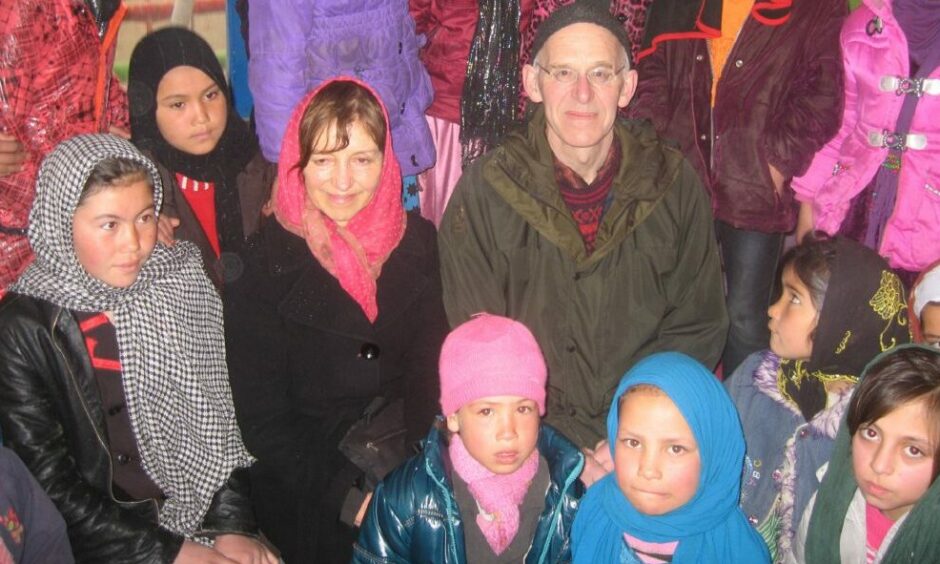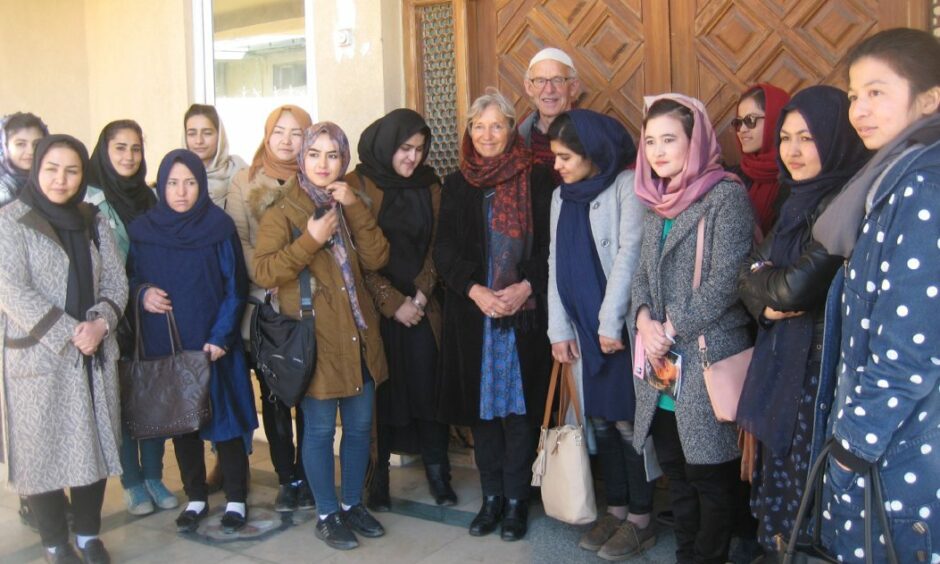In 1972, Afghanistan was an exotic and largely unknown country to young and carefree honeymooners John and Lorna Norgrove.
Then in their early 20s, the newlyweds spent time in the country during an epic six-week trip by bus to India.
It stoked their passion for travel and for experiencing off-the-beaten-track places and different ways of life.
In more recent times, Afghanistan has shaped their lives in a very different way from that eventful but happy adventure of 50 years ago.
From carefree first visit to tragic second
The next visit they made after their honeymoon was in 2012 in the aftermath of the death of their daughter Linda who was making a difference in the country as an aid worker.
Linda was abducted in 2010 and killed by a grenade during a rescue operation by US forces.
Her parents later set up the Linda Norgrove Foundation in her memory. Since then, they have worked to support people in Afghanistan, particularly helping women and girls get an education and jobs.
The country where they spent Christmas Day in 1972 is a much-changed place to the one they know now, with a much different pull on their emotions.
The Norgroves made their first excursion to Afghanistan aboard a largely unreliable budget bus from London to Delhi for £39.
A month and a half and several breakdowns later, the couple, then in their 20s, arrived in Herat.
“We both felt that when we crossed the border from Iran into Afghanistan we had found the place we were searching for, the exotic east,” said John.
‘There was a real sense of freedom’
There were more horses and carts in the streets than cars. Tribesmen strolled the streets with rifles slung over their shoulders.
In Kandahar camels wandered the streets, while Kabul was more sophisticated with trees and shops and cafes blasting out Pink Floyd.
“It seemed very stable,” says Lorna. “There was a real sense of freedom.”
The intention was to continue to Australia, but the couple run out of funds and flew home.
The “mind-expanding” experience had, however, affected them deeply: “Travel should expose the tenuous assumptions and attitudes that narrow our perspectives,” says John.
“We were changed by that trip: Afghanistan was the biggest cultural shock and, even now, the cultural difference is the biggest challenge we have to negotiate.”
They later introduced their children Linda and Sofie to travel, selling a couple of cows on the family croft every second year to fund holidays to places like Egypt, Thailand and Malaysia.
John said: “It was really positive for our children to go travelling when they were young and see countries where they live entirely different lives. We do the same with our grandchildren now.”
Linda, in particular, caught the travel bug and subsequently went to work in Afghanistan after taking up a job with the UN in 2005.
“When Linda got the job in Kabul, my reaction was ‘what a fantastic place to go, you’ll love it’,” says Lorna.
“But, at the same time, I was thinking ‘I don’t want you to go, it’s not really safe’.
“There was danger in all the countries she visited, but she was determined. She ended up living in Afghanistan for many years and most of her friends were Afghans.”
Couple returned to a very different Afghanistan
Linda later moved to a job in Laos, but missed Afghanistan and returned to the job which she was doing at the time of her abduction.
When her parents returned in the aftermath of her death, they hardly recognised the country of 1972.
“It was completely different,” says Lorna. “There was a very different feel to it. There were a lot more security issues on the streets, we could not walk around by ourselves and had to be escorted everywhere.”
John recalls watch towers had sprung up and buildings were protected by concrete walls. There were few trees and a lot of flattened properties: “It gave the impression of a city under siege.”
They returned in 2015 and again in 2019 and hope to go back next year. Linda warned them not to visit while she was there because of the dangers, and Sofie is like-minded.
“I’m told it’s safe, but you’re still going into the unknown in a country with no British Embassy, so if you get into serious trouble there is no one there to support you,” says John.
“But we will go back, I’m sure of that.”
Support for Linda Norgrove Foundation increasing
In the meantime, they continue to help from Lewis, the base of the foundation which is seeing income from donations, trusts and legacies rising.
It has also increased the number of trustees and paid staff to cope with additional administration.
As well as supporting education and paying for life-saving surgery for children, the foundation pays for shoes for children and other humanitarian aid.
This includes heating stoves, fuel and blankets and emergency food and hygiene parcels to families.
Last year it launched a campaign to provide emergency food parcels.
John says: “There is a greater need than ever. Some charities in Afghanistan gave up and moved out when the Taliban took over.
“With the help of contacts we have been able to get money and aid to people who need it.”
The Norgoves were concerned to hear in December of the suspension of higher education for women in Afghanistan.
The foundation is in contact with sponsored students and is continuing to provide living allowances to them, while also exploring other options to support their studies.
The unreliable electricity supply is also now turned on for just a couple of hours a day in Kabul.
Dire situation for country
“It’s reported that the Taliban are exporting the country’s coal to earn foreign currency and most will sit out this freezing winter without significant heating,” says John.
“Many have lost jobs, with budgets further tightened by rampant inflation and access to savings held in dysfunctional banks restricted.
“Millions now rely on emergency food aid to prevent them from starving.
“The need goes up year on year. You don’t hear so much about Afghanistan at the moment, but there is such incredible malnutrition and some people are living in appalling conditions.
“I think people view Afghanistan as a continual problem that probably will never be resolved.
“However, that doesn’t get away from the fact it’s a dire situation there.”
Are you interested in more exclusive and breaking Highland and Islands news from the P&J? If so, why not join our dedicated Facebook page HERE





Conversation